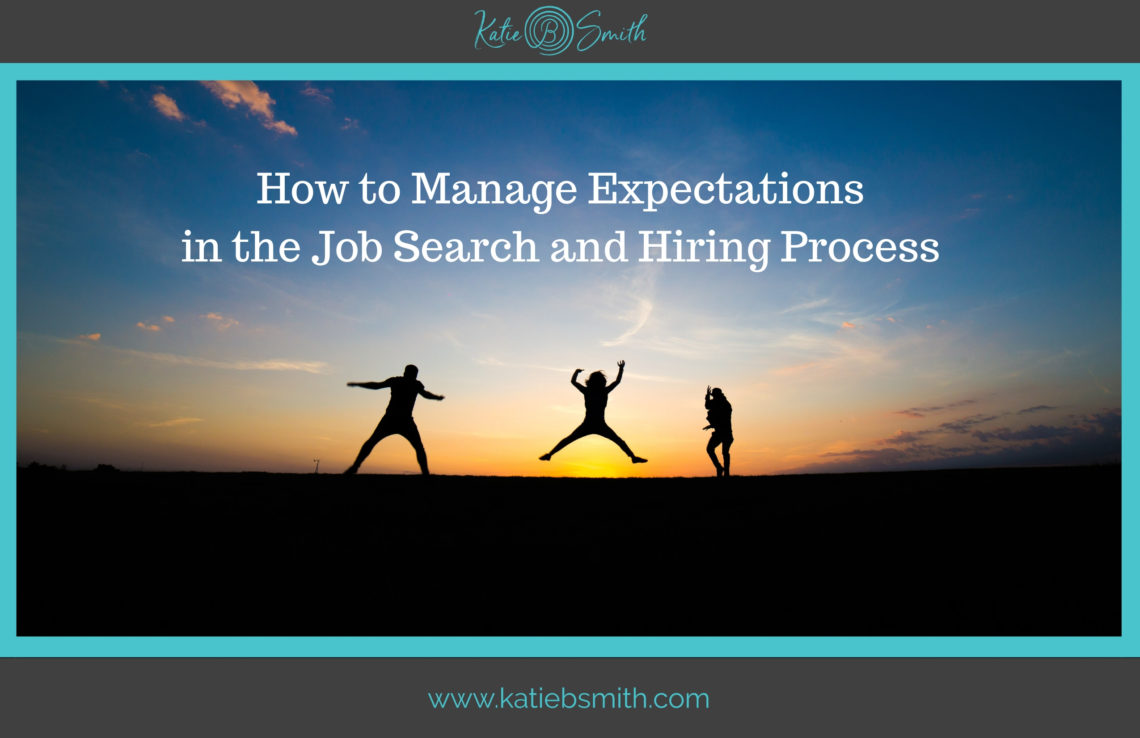How to Manage Expectations in the Job Search and Hiring Process
Any time we put expectations on ourselves, it stops us from being aware of the present moment. Expectations have us immediately shift into future or past thinking, which robs us of the present moment. Begin robbed of the present moment makes it harder to be curious and open to possibility thinking.
Prior to an interview, whether you are a hiring manager giving the interview or you are the candidate, it is important to go into the meeting not only thinking the person on the other end of the table is going to be doing the best they can but also that you are holding that intention for yourself. Then there is no judgment around the outcome.
Instead of going in as a hiring manager thinking this candidate is going to be too old, is too short on certain experience, or doesn’t have the education you prefer, go in knowing that you are going to learn something new about this candidate. You have this opportunity to find out more about what makes this candidate tick and explore with curiosity if they will be a good fit into your culture. As a hiring manager ask yourself, “How can I strengthen my ability to ask deeper questions and use my emotional intelligence to find out what this candidate’s values are and if they will be the right cultural fit?”
Like finding a partner, we want to end up with people that have the same values we hold; these are the relationships that last.
For most companies, it is the cultural fit that most matters. You can teach skills to anyone, but finding a candidate whose values match the organization and culture is what creates a longer-term employee and reduces turnover. If you want the candidate to open up and be transparent, it is important that you as a hiring manager create the space and way of being that allows for that candidate to do the same.
As a candidate, the key is showing your value. Here is a company that has a need and is looking for someone to solve specific pain points. How can you be curious and confident in how you are showing your value and listening for how their culture and values show up? Using the experience as an opportunity to practice being present to yourself and the interviewer gives you permission and confidence to trust your gut instinct to say or ask whatever comes to mind in the moment. It calms your nerves and eliminates the idea that you need to be approved. Because walking into any conversation with the expectation of needing approval diminishes our confidence.
One key ingredient in building emotional intelligence skills is to meet the other person where they are, match their energy, be fully present and be curious.
When we walk into a conversation being present, the confidence allows for transparency in the conversation as a hiring manager and candidate. It builds trust in ourselves, and this shows confidence and mutual understanding that we are both heard and acknowledged. This fosters mutual connection and respect, no matter the outcome.
In being present and trusting that the other person is doing the best they can, you no longer experience the letdown of expectations and instead experience the enjoyment of connection with another and the opportunity to strengthen your EQ and communication skills.
Managing expectations takes practice and consistency in being present to yourself and your behavior. Being willing to let every experience be an opportunity to grow as a hiring manager or candidate increases your awareness, respect and opens you and the ones you are with to possibilities.
